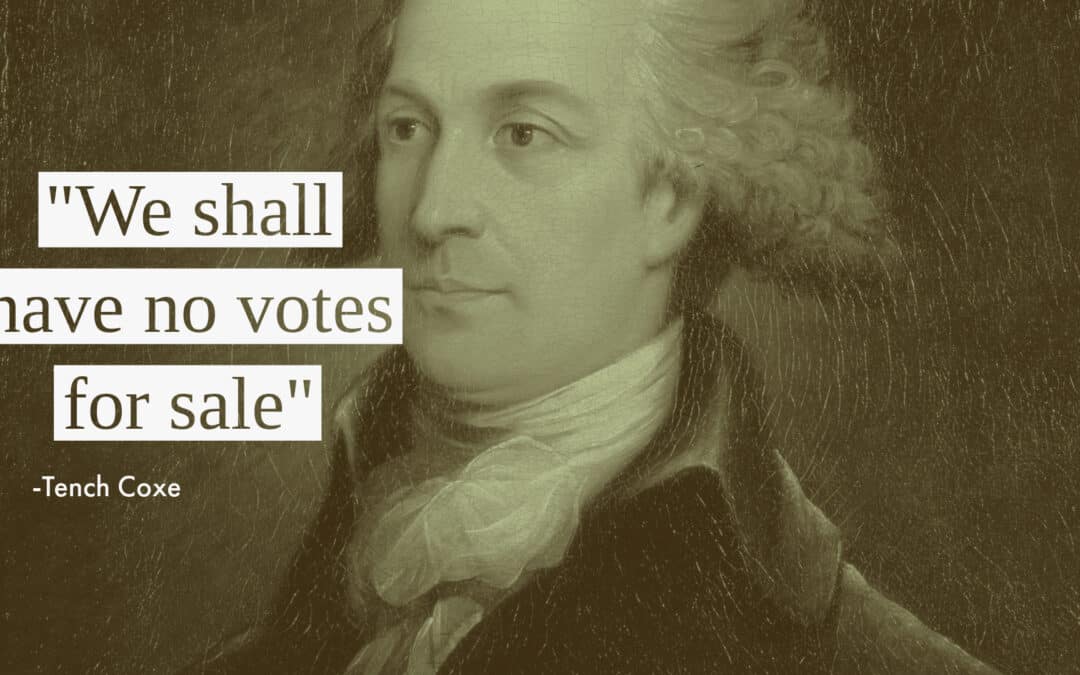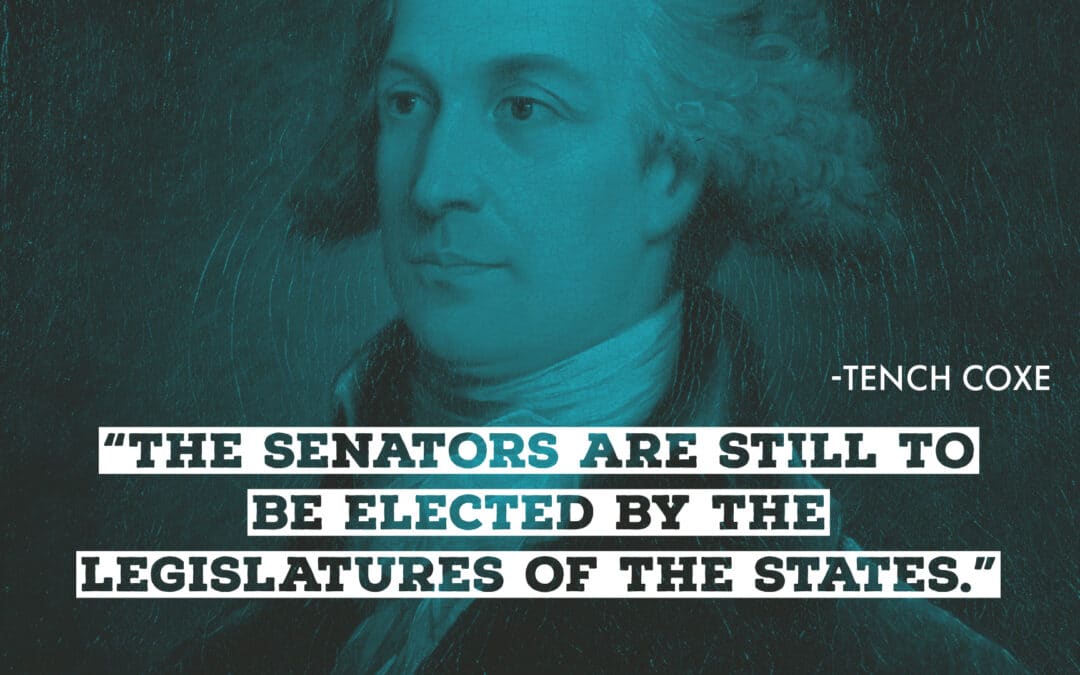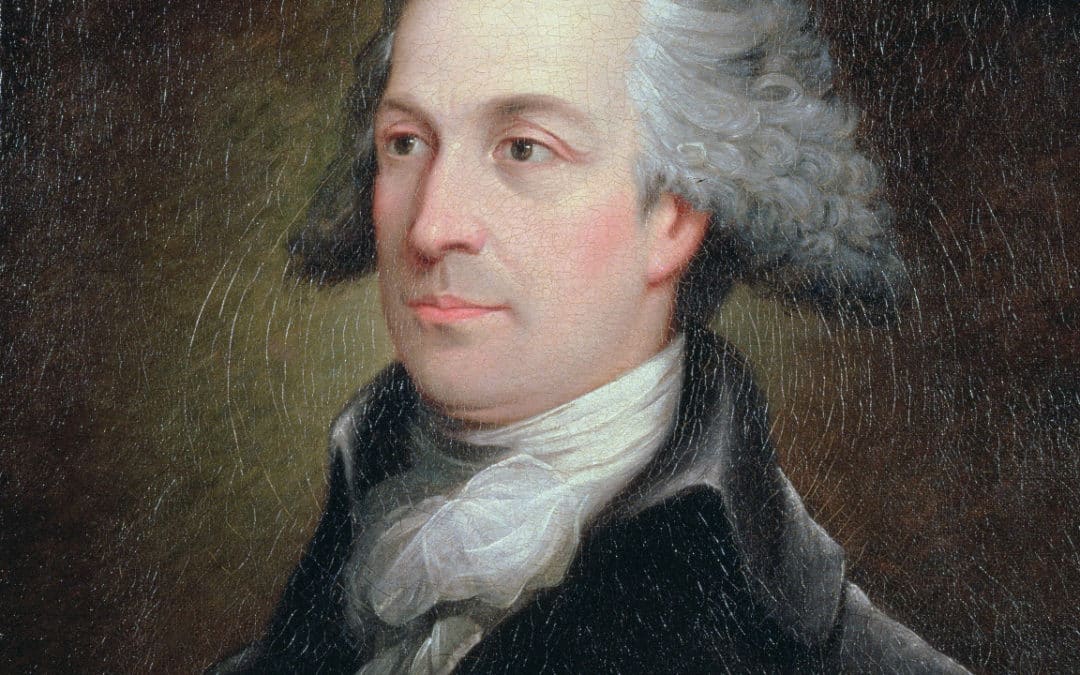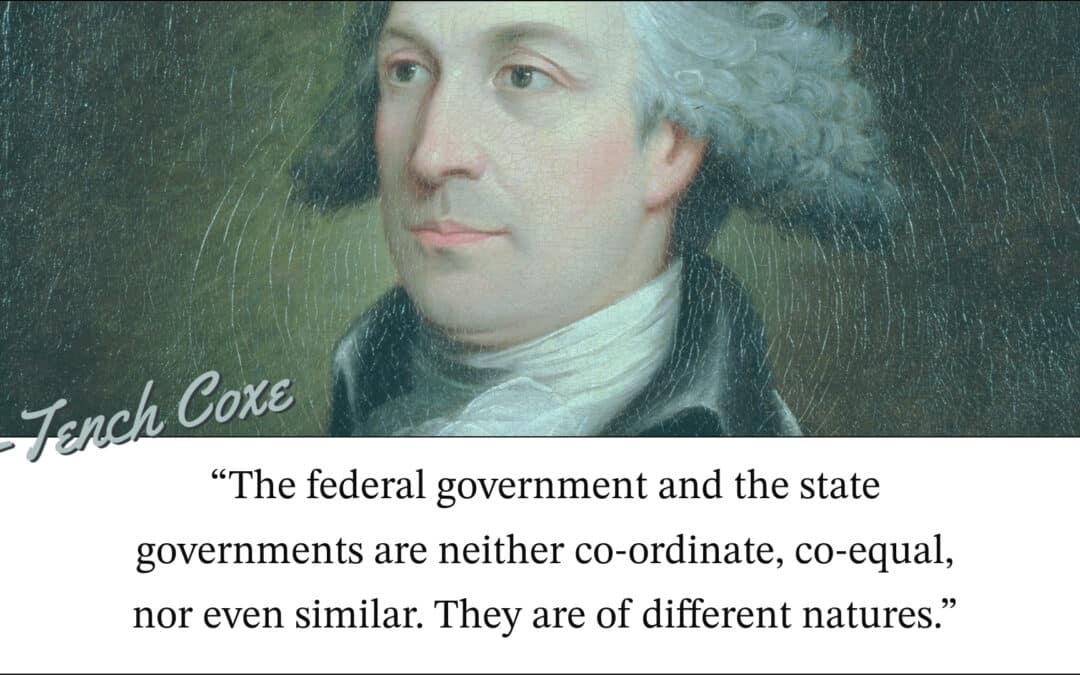
Ratification Debates


Tench Coxe on the Senate: A Counter to Anti-Federalist Aristocracy Fears
The structure of the Senate was a serious point of contention for many Anti-Federalists, who warned it would quickly become a permanent or baneful aristocracy, with most senators serving for life. Tench Coxe was a leading voice on the Federalist side rejecting these...
Tench Coxe on the Executive Branch: President, not a King
American presidents behave almost like elected kings, exercising vast powers with very little accountability. But that wasn’t the plan. Tench Coxe was a key figure in the ratification debates, and he argued the presidency was designed to be a far cry from a...
How Tench Coxe Shaped the Ratification Debates: Essays of A Pennsylvanian
History often overlooks Tench Coxe, but he was one of the most important founding fathers. While the Federalist Papers are celebrated and widely discussed today, Coxe’s essays, written under the pen name “A Pennsylvanian,” had a far greater impact on...
Was Shays’ Rebellion Overblown? The Debate Over the Constitution
“Never let a good crisis go to waste” isn’t just some modern invention by people who want to expand government power. It seems to be an approach used to convince people of the need to replace the Articles of Confederation with a new Constitution in 1787. Even James...
